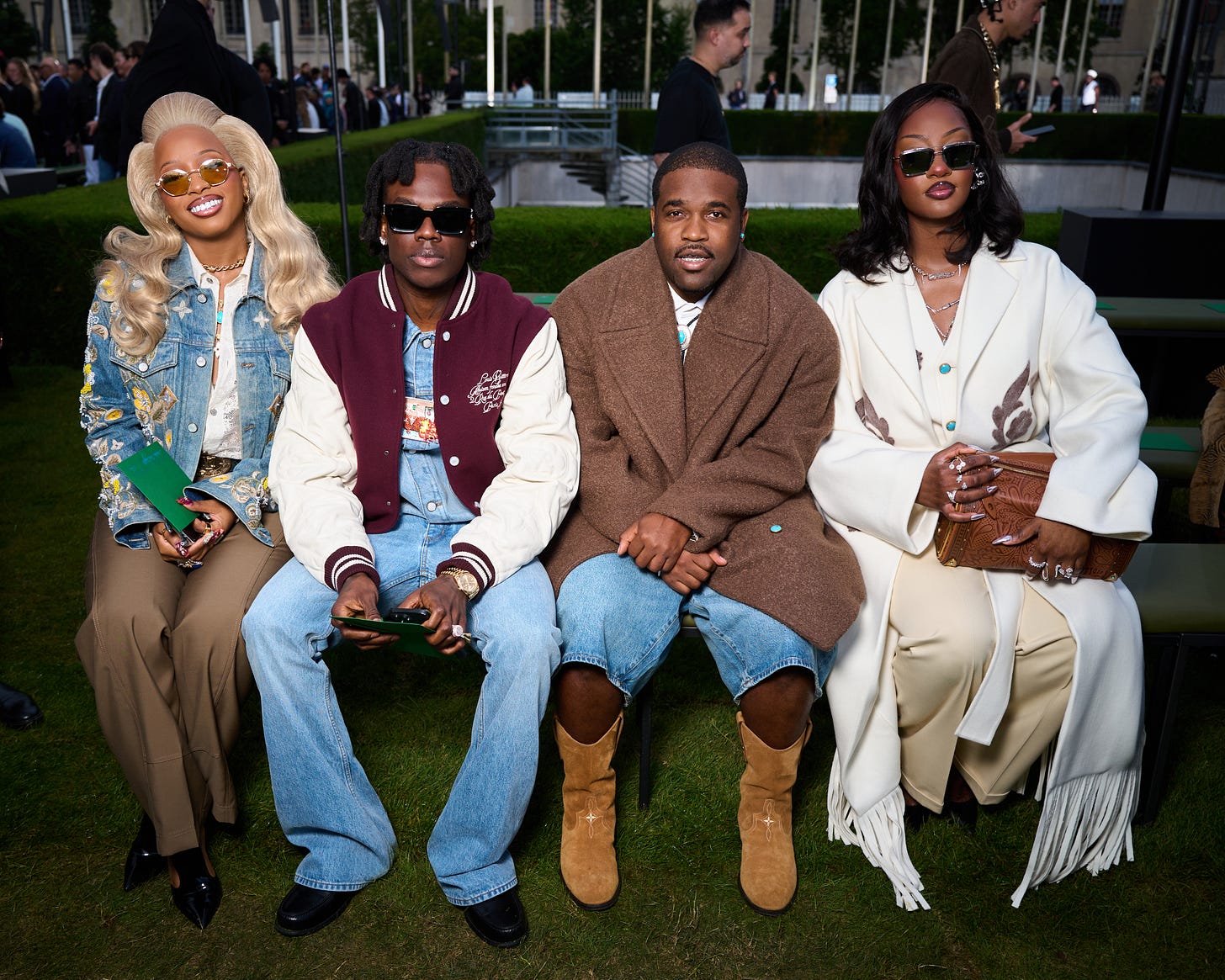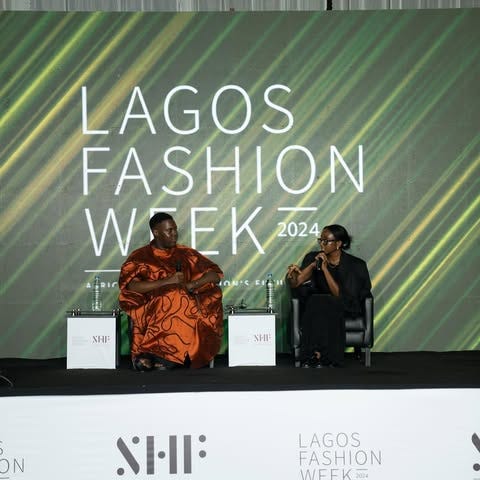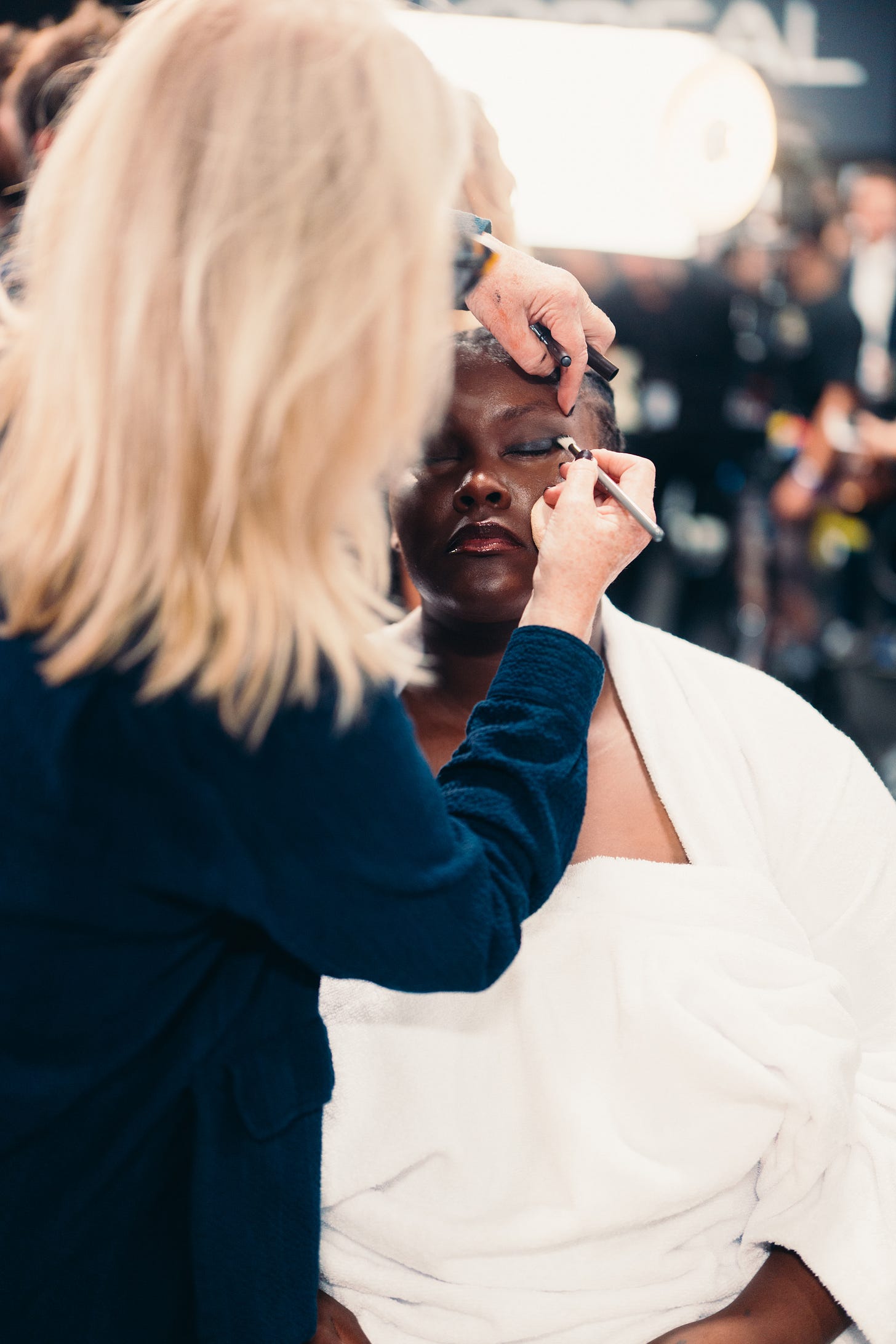What's Next For African Fashion And Beauty?
A look back at 2024. Plus, my predictions for 2025, including The Met Gala, brand ambassador deals and a shift in consumer spending.
Before we move forward, let’s take a look back at the past 12 months.
2024 was a promising year for African fashion. We saw designers break into the international market and present their collections in major fashion capitals — Orange Culture in London and New York, South Africa’s Maxhosa and Nigeria’s Lagos Space Programme in Paris. We also saw a slew of creative projects and collaborations happen in Africa. Whether it’s a major international brand shooting a campaign collection on the continent (see: Wales Bonner’s SS24 campaign shot in Iten, Kenya) or designing the official Olympic kit for an African nation at the Paris 2024 Olympic Games (see: Labrum London x Adidas and Sierra Leone), there was a constant stream of creativity flowing in and out of Africa.
Over in the diaspora, significant shifts were also taking place. London Fashion Week in February and September was punctuated with designers spotlighting their African heritage, including buzzy designers Tolu Coker, Ahluwalia and Labrum London. Others reached new milestones: American-Togolese designer Jacques Agbobly was named a semi-finalist for the LVMH Prize 2024, making him the first designer of Togolese heritage to be shortlisted for the prize; and newcomer Oiza Studio made its fashion week debut in February with a presentation in London. Over in Italy, British-Nigerian designer Tokyo James held his ground in Milan, once again returning to the city to showcase his SS25 collection in September, where he brought a touch of Nigeria to the Italian metropolis. His collection featured deadstock sourced from Benin, Nigeria, as well as Italy and the UK.
Something that wasn’t on my 2024 bingo card was Meghan Markle wearing Orire, an emerging Lagos-based womenswear brand, whilst on a three-day tour in Nigeria, causing the brand’s website to crash and the dress completely sold out. African brands also explored new retail opportunities, with many travelling overseas to meet their international audience. In August, Orire and Kadiju held a joint pop-up in Shoreditch, East London, and streetwear brands Ashluxe and Severe Nature held pop-up events respectively.
The African music surge continued to proliferate throughout the year. It was a momentous moment for the South African singer Tyla, who bagged several music awards in 2024, including the Billboard and MTV Music Awards, as well as the Grammys, where she won the Best African Music Performance award, a new category launched last year. The rise of African music even caught the attention of luxury brands, particularly LVMH’s Louis Vuitton. The French brand has been quick to embrace African talent by dressing musicians and sitting them front row at fashion week, thanks to music mogul Pharrell Williams, the creative director at Louis Vuitton men’s. Stylists and PR firms have found that international brands (heavyweight and emerging players) are becoming less resistant to dressing African musicians: Asake wore custom Martine Rose to the Grammy Awards; Tyla wore a Balmain sand sculpture dress to the Met Gala last year; and Burna Boy wore custom Louis Vuitton for his performance at the British music festival, Glastonbury.
Fashion weeks in Africa will always be a personal favourite of mine. Not only are they very different from the big four, but there’s an air of excitement and hunger that makes them stand out from the rest. As these events tend to happen annually rather than seasonally, designers only have one shot to make an impact and showcase their collection to a room full of local press, buyers and industry leaders. From Kampala, Uganda, to Dakar, Senegal, several fashion weeks are shining a light on talented designers from across the continent. Last month, I discovered that São Tomé and Príncipe, a small island off the coast of West Africa, also has a fashion week, which draws in a healthy mix of domestic and Latin American brands.
One fashion week I’ve been keeping a close eye on is Lagos Fashion Week, where, for the past three years, I’ve been able to attend the week-long event in person. It’s one of the biggest fashion weeks on the continent and draws in a handful of international buyers and press, as well as key sponsorship that helps keep the fashion week afloat. It was a pleasant surprise to see so many international content creators and influencers attend the event last year. South Africa Fashion Week, is another major fashion event on the continent. It’s been a springboard for designers including Thebe Magugu, Lukhanyo Mdingi and Mmusomaxwell. Sadly, I couldn’t be there in person but I interviewed a handful of buzzy designers on the schedule in April. You can read my coverage of last year’s events here: Lagos Fashion Week and South Africa Fashion Week.
The goal for 2025 is to cover more fashion weeks and events across the continent. (Event organisers, please get in touch.)
Transforming Beauty In Africa
Heavyweight beauty players also cashed in on the growing popularity of fashion weeks in Africa. It’s no secret that American beauty giant Mac Cosmetics has long sponsored many African fashion weeks, from Lagos to South Africa. But over the past couple of years, their monopoly over the market has shifted. In April, L’Oréal Paris announced it was the official makeup and beauty sponsor for South Africa Fashion Week, taking over the reins from Mac Cosmetics. The move hinted that the French conglomerate is ramping up activity in the market, not only in South Africa but in other major beauty hubs such as Nigeria. In June, L'Oréal Paris tapped Temi Otedola as its first Nigerian ambassador, she later made her runway debut in Paris during L’Oréal Paris’s ‘Walk Your Worth’ Runway show in October.
2024 kicked off with beauty brand Topicals going viral after it took several influencers on a trip to Ghana — a lesson in how to do influencer trips right. With demand on the continent high, Topicals partnered with Beauty Hut Africa, a Nigerian beauty e-commerce store, to launch its products in Nigeria. In December, Topicals held another influencer trip, this time taking guests to Lagos.
Other brands are plotting their debut in Africa, including Adwoa Beauty. However, finding the right retail partner is no easy feat, founder Julian Addo told me in an interview with the Business of Fashion. “I cannot have Adwoa Beauty being sold next to Maggi cubes [a type of food seasoning]. We need more aspirational places for beauty in Africa,” she said. French-Congolese brand Koba skincare continued its global expansion and launched in New York. Lastly, in February, Puig-owned fragrance brand Byredo collaborated with a series of African creatives for its debut magazine, which paid homage to its bestselling fragrance Bal d’Afrique.
African consumers are increasingly spending more on beauty products, which highlights a unique opportunity for domestic and international brands. Niche perfumers were hoping to cash in on this shift in consumer behaviour and tap into the $1.3 billion market. Several brands found that consumers are willing to spend $200 a month on a new fragrance. And bringing 2024 to a close, a slew of premium hair care brands, including The Steam Bar, Charlotte Mensah and Sam McKnight, launched in South Africa keen to tap into the market’s young population and rising middle class, as well as provide the market with better access to premium and luxury hair care products.
I’m sure there were many more exciting shifts and events in the African fashion and beauty markets that I’ve not mentioned here. Truthfully, I think that’s a great indicator of just how much was going on in the sector — so much so that I couldn’t keep up. One thing that became clear to me this year: For the market to go through a significant, substantial and long-lasting transformation, it needs equal participation and investment from domestic and international players. Without it, the market will struggle to thrive long term as those with the financial power look for other more advanced markets to invest in.
My favourite stories from 2024
Beauty
Fashion
My SS25 Vogue Runway Reviews: Maxhosa, Orange Culture, Lagos Space Programme, Kente Gentlemen, Emmy Kasbit and Iamisigo
Why Lagos Space Programme is Skipping Paris Fashion Week This Season
International Luxury Brands Wake Up To The African Music Boom
Why Olivier Rousteing's Disney X Balmain: 'The Lion King' Collection Is A Personal Journey
2025 Predictions
So where do we go from here? Hopefully, the momentum continues. However, expect bumps along the way. The new year was off to a devastating start as Ghana’s Kantamanto market was destroyed by a horrific fire that swept through the market in the early hours of the morning on 2 January. This will undoubtedly have a profound impact on traders, Ghana’s economy and the wider sustainable fashion industry. (Read my report here.) But, looking more holistically at the continent, there are exciting moments ahead.
Here are my top five predictions:
Brand Ambassadors Announcements
The Met Gala
Buzzy Collaborations
Shift in Consumer Spending (a snippet from my survey)
The Pop-up Boom
African Music Stars Sign Brand Ambassador Deals
Could 2025 be the year we see another African musician named as a brand ambassador at a major fashion brand? I hope so. The question is, who will it be…Tyla? Rema? Tems? Uncle Waffles? Black Sherif?








